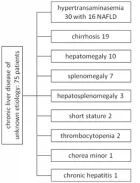Abstract
Research Article
Is binge watching among medical students associated with depression and anxiety?
Meriem Hamza*, Soumeyya Halayem, Imène Jraidi, Myriam Boudali, Asma Bouden and Ahlem Belhadj
Published: 21 March, 2023 | Volume 7 - Issue 1 | Pages: 004-010
Objectives: Investigate binge-watching (BW) behavior among students and assess its correlation with anxiety and depressive symptoms.
Methods: Medical students who met the definition of BW were divided, according to their viewing frequency, into three groups: G1: once a month or less, G2: once a week or once every two weeks, and G3: twice a week or more. Beck Depression Inventory and State-Trait Anxiety Inventory were used.
Results: Ninety-four participants were recruited. The prevalence of BW was 72.3%. Depression and anxiety scores didn’t differ between binge watchers and the non-binge watcher group. G2 was found to be significantly less depressed (p = 0.014) and had a lower anxiety state (p = 0.05) and anxiety trait scores (p = 0.026) than the control group. Feeling tired was the most prevalent reason to stop viewing among G3 (p = 0.001).
Conclusion: Binge-watching could be when used in a specific manner, a way to cope with negative feelings.
Read Full Article HTML DOI: 10.29328/journal.ida.1001035 Cite this Article Read Full Article PDF
Keywords:
Anxiety; Binge-watching; Depression; Medical students; Video on demand
References
- Jacobs RA. Is There a Relationship Between Binge Watching and Depressive Symptoms?: Immaculata University; 2017.
- Jenner M. Is this TVIV? On Netflix, TVIII, and binge-watching. New media & society. 2016; 18:257-73.
- Walton-Pattison E, Dombrowski SU, Presseau J. 'Just one more episode': Frequency and theoretical correlates of television binge watching. J Health Psychol. 2018 Jan;23(1):17-24. doi: 10.1177/1359105316643379. Epub 2016 Apr 22. PMID: 27106091.
- Katz E, Blumler JG, Gurevitch M. Uses and gratifications research. The public opinion quarterly. 1973; 37:509-23.
- Collet L, Cottraux J. [The shortened Beck depression inventory (13 items). Study of the concurrent validity with the Hamilton scale and Widlocher's retardation scale]. Encephale. 1986; 12:77-9.
- Beck AT, Rial WY, Rickels K. Short form of depression inventory: cross-validation. Psychol Rep. 1974 Jun;34(3):1184-6. PMID: 4424377.
- Gauthier J, Bouchard S. Adaptation canadienne-française de la forme révisée du State–Trait Anxiety Inventory de Spielberger. Canadian Journal of Behavioural Science/Revue canadienne des sciences du comportement. 1993; 25:559.
- Spielberger CD. State-Trait Anxiety Inventory. The Corsini Encyclopedia of Psychology: John Wiley & Sons, Inc.; 2010.
- Ahmed A. New era of TV-watching behavior: Binge-watching and its psychological effects. Media Watch. 2017; 8:192-207.
- Sarfraz Z, Sarfraz M, Sarfraz A. Binge-Watching Behaviours: The Impact on Medical Students in Pakistan. J Pak Med Assoc. 2019 Oct;69(10):1577. PMID: 31622325.
- ‘Binging’Is the New Viewing for Over-the-Top Streamers. Nielsen. 2013.
- Bury R, Li J. Is it live or is it timeshifted, streamed or downloaded? Watching television in the era of multiple screens. New Media & Society. 2015; 17:592-610.
- Feijter Dd, Khan V-J, Gisbergen Mv. Confessions of A “Guilty” Couch Potato Understanding and Using Context to Optimize Binge-watching Behavior. Proceedings of the ACM International Conference on Interactive Experiences for TV and Online Video. Chicago, Illinois, USA: Association for Computing Machinery; 2016; 59–67.
- Shim H, Kim KJ. An exploration of the motivations for binge-watching and the role of individual differences. Comput Human Behav. 2018; 82:94-100.
- Pittman M, Sheehan K. Sprinting a media marathon: Uses and gratifications of binge-watching television through Netflix. First Monday. 2015; 20.
- Ching KH, Tak LM. The structural model in parenting style, attachment style, self-regulation and selfesteem for smartphone addiction. Journal of Psychology & Behavioral Science. 2017; 3:85-103.
- Worsley JD, Mansfield R, Corcoran R. Attachment Anxiety and Problematic Social Media Use: The Mediating Role of Well-Being. Cyberpsychol Behav Soc Netw. 2018 Sep;21(9):563-568. doi: 10.1089/cyber.2017.0555. Epub 2018 Aug 22. PMID: 30132681.
- Tukachinsky R, Eyal K. The Psychology of Marathon Television Viewing: Antecedents and Viewer Involvement. Mass Communication and Society. 2018; 21:275-95.
- Wheeler KS. The relationships between television viewing behaviors, attachment, loneliness, depression, and psychological well-being. 2015.
- Sung YH, Kang EY, Lee W-N. A bad habit for your health? An exploration of psychological factors for binge-watching behavior. 65th Annual International Communication Association Conference 2015.
- Shim H, Lim S, Jung EE, Shin E. I hate binge-watching but I can’t help doing it: The moderating effect of immediate gratification and need for cognition on binge-watching attitude-behavior relation. Telematics and Informatics. 2018; 35:1971-9.
- Riddle K, Peebles A, Davis C, Xu F, Schroeder E. The Addictive Potential of Television Binge Watching: Comparing Intentional and Unintentional Binges. Psychology of Popular Media Culture. 2017.
- Bickham DS, Hswen Y, Rich M. Media use and depression: exposure, household rules, and symptoms among young adolescents in the USA. Int J Public Health. 2015 Feb;60(2):147-55. doi: 10.1007/s00038-014-0647-6. Epub 2015 Jan 14. PMID: 25586816; PMCID: PMC4375733.
- Shiue I. Modeling indoor TV/screen viewing and adult physical and mental health: Health Survey for England, 2012. Environ Sci Pollut Res Int. 2016 Jun;23(12):11708-15. doi: 10.1007/s11356-016-6354-5. Epub 2016 Mar 5. PMID: 26944424; PMCID: PMC4893049.
- Potts R, Sanchez D. Television viewing and depression: No news is good news. Journal of Broadcasting & Electronic Media. 1994; 38:79-90.
- Schweidel DA, Moe WW. Binge watching and advertising. Journal of Marketing. 2016; 80:1-19.
- Mikos L. Digital media platforms and the use of TV content: Binge watching and video-on-demand in Germany. Media and Communication. 2016; 4:154-61.
- Jenner M. Binge-watching: Video-on-demand, quality TV and mainstreaming fandom. International Journal of Cultural Studies. 2017; 20:304-20.
- Flayelle M, Maurage P, Vögele C, Karila L, Billieux J. Time for a plot twist: Beyond confirmatory approaches to binge-watching research. Psychology of Popular Media Culture. 2018.
- Flayelle M, Canale N, Vögele C, Karila L, Maurage P, Billieux J. Assessing binge-watching behaviors: Development and validation of the “Watching TV Series Motives” and “Binge-watching Engagement and Symptoms” questionnaires. Comput Human Behav. 2019; 90:26-36.
Figures:
Similar Articles
-
Burnout and Related Factors in Caregivers of outpatients with SchizophreniaHatice Demirbas*,Erguvan Tugba Ozel Kizil. Burnout and Related Factors in Caregivers of outpatients with Schizophrenia. . 2017 doi: 10.29328/journal.hda.1001001; 1: 001-011
-
Multi-factorial Depressive Disorders Need Multi-dimensional InterventionsMustafa Melih Bilgi*. Multi-factorial Depressive Disorders Need Multi-dimensional Interventions. . 2017 doi: 10.29328/journal.hda.1001002; 1: 012-014
-
Anxiety and depression as an effect of birth order or being an only child: Results of an internet survey in Poland and GermanyJochen Hardt*,Lisa Weyer,Malgorzata Dragan,Wilfried Laubach. Anxiety and depression as an effect of birth order or being an only child: Results of an internet survey in Poland and Germany. . 2017 doi: 10.29328/journal.hda.1001003; 1: 015-022
-
May we feed cancer?Maria Grazia Spurio*. May we feed cancer?. . 2018 doi: 10.29328/journal.ida.1001005; 2: 001-006
-
Vestibular-limbic relationships: Brain mappingPaolo Gamba*. Vestibular-limbic relationships: Brain mapping. . 2018 doi: 10.29328/journal.ida.1001006; 2: 007-013
-
Responding to Disasters: More than economic and infrastructure interventionsDavid Crompton OAM*,Ross Young,Jane Shakespeare-Finch,Beverley Raphael AM. Responding to Disasters: More than economic and infrastructure interventions. . 2018 doi: 10.29328/journal.ida.1001007; 2: 014-028
-
Mindset kinetics and some depression status: A new quantitative model under biochemical - toxicology approach?Luisetto M*,Ghulam Rasool Mashori,Behzad Nili-Ahmadabadi,Farhan Ahmad Khan,Kausar Rehman Khan. Mindset kinetics and some depression status: A new quantitative model under biochemical - toxicology approach?. . 2018 doi: 10.29328/journal.ida.1001008; 2: 029-039
-
Anti-anxiety effects in mice following acute administration of Ficus Thonningii (wild fig)Aduema W*,Akunneh-Wariso C,Ejiofo DC,Amah AK. Anti-anxiety effects in mice following acute administration of Ficus Thonningii (wild fig). . 2018 doi: 10.29328/journal.ida.1001009; 2: 040-047
-
Sleeplessness and healthSunitha V,Jeyastri Kurushev,Felicia Chitra,Manjubala Dash*. Sleeplessness and health. . 2019 doi: 10.29328/journal.ida.1001010; 3: 001-007
-
Translation, adaptation and validation of Depression, Anxiety and Stress Scale in UrduWaqar Husain*,Amir Gulzar. Translation, adaptation and validation of Depression, Anxiety and Stress Scale in Urdu. . 2020 doi: 10.29328/journal.ida.1001011; 4: 001-004
Recently Viewed
-
Obesity in Patients with Chronic Obstructive Pulmonary Disease as a Separate Clinical PhenotypeDaria A Prokonich*, Tatiana V Saprina, Ekaterina B Bukreeva. Obesity in Patients with Chronic Obstructive Pulmonary Disease as a Separate Clinical Phenotype. J Pulmonol Respir Res. 2024: doi: 10.29328/journal.jprr.1001060; 8: 053-055
-
Current Practices for Severe Alpha-1 Antitrypsin Deficiency Associated COPD and EmphysemaMJ Nicholson*, M Seigo. Current Practices for Severe Alpha-1 Antitrypsin Deficiency Associated COPD and Emphysema. J Pulmonol Respir Res. 2024: doi: 10.29328/journal.jprr.1001058; 8: 044-047
-
Navigating Neurodegenerative Disorders: A Comprehensive Review of Current and Emerging Therapies for Neurodegenerative DisordersShashikant Kharat*, Sanjana Mali*, Gayatri Korade, Rakhi Gaykar. Navigating Neurodegenerative Disorders: A Comprehensive Review of Current and Emerging Therapies for Neurodegenerative Disorders. J Neurosci Neurol Disord. 2024: doi: 10.29328/journal.jnnd.1001095; 8: 033-046
-
Metastatic Brain Melanoma: A Rare Case with Review of LiteratureNeha Singh,Gaurav Raj,Akshay Kumar,Deepak Kumar Singh,Shivansh Dixit,Kaustubh Gupta*. Metastatic Brain Melanoma: A Rare Case with Review of Literature. J Radiol Oncol. 2025: doi: 10.29328/journal.jro.1001080; 9: 050-053
-
Validation of Prognostic Scores for Attempted Vaginal Delivery in Scar UterusMouiman Soukaina*,Mourran Oumaima,Etber Amina,Zeraidi Najia,Slaoui Aziz,Baydada Aziz. Validation of Prognostic Scores for Attempted Vaginal Delivery in Scar Uterus. Clin J Obstet Gynecol. 2025: doi: 10.29328/journal.cjog.1001185; 8: 023-029
Most Viewed
-
Evaluation of Biostimulants Based on Recovered Protein Hydrolysates from Animal By-products as Plant Growth EnhancersH Pérez-Aguilar*, M Lacruz-Asaro, F Arán-Ais. Evaluation of Biostimulants Based on Recovered Protein Hydrolysates from Animal By-products as Plant Growth Enhancers. J Plant Sci Phytopathol. 2023 doi: 10.29328/journal.jpsp.1001104; 7: 042-047
-
Sinonasal Myxoma Extending into the Orbit in a 4-Year Old: A Case PresentationJulian A Purrinos*, Ramzi Younis. Sinonasal Myxoma Extending into the Orbit in a 4-Year Old: A Case Presentation. Arch Case Rep. 2024 doi: 10.29328/journal.acr.1001099; 8: 075-077
-
Feasibility study of magnetic sensing for detecting single-neuron action potentialsDenis Tonini,Kai Wu,Renata Saha,Jian-Ping Wang*. Feasibility study of magnetic sensing for detecting single-neuron action potentials. Ann Biomed Sci Eng. 2022 doi: 10.29328/journal.abse.1001018; 6: 019-029
-
Pediatric Dysgerminoma: Unveiling a Rare Ovarian TumorFaten Limaiem*, Khalil Saffar, Ahmed Halouani. Pediatric Dysgerminoma: Unveiling a Rare Ovarian Tumor. Arch Case Rep. 2024 doi: 10.29328/journal.acr.1001087; 8: 010-013
-
Physical activity can change the physiological and psychological circumstances during COVID-19 pandemic: A narrative reviewKhashayar Maroufi*. Physical activity can change the physiological and psychological circumstances during COVID-19 pandemic: A narrative review. J Sports Med Ther. 2021 doi: 10.29328/journal.jsmt.1001051; 6: 001-007

HSPI: We're glad you're here. Please click "create a new Query" if you are a new visitor to our website and need further information from us.
If you are already a member of our network and need to keep track of any developments regarding a question you have already submitted, click "take me to my Query."


















































































































































